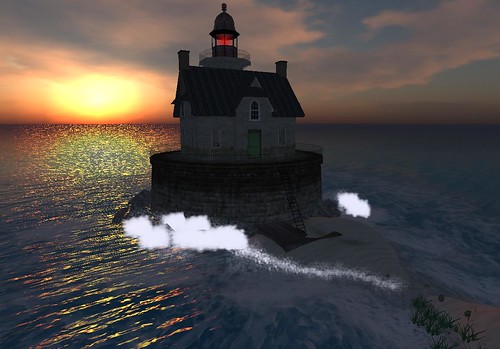
The areas of East Egg and West Egg in Long Island find isolation not just geographically, “separated only by a courtesy bay” (9), but more significantly in spirit. The East Egg consists of the already established wealthy class that has been part of the aristocracy for generations. The West Egg, in contrast, attracts the “nouveau riche,” those that had more than likely been born under less comfortable circumstances and who suddenly find themselves well-to-do. The "new money" try desperately to situate themselves on to that level of wealth that the people of the East Egg perch on, but ultimately realize the difficulty of doing so. The denizens of the East Egg will never accept them as equals; they consider the West Egg inhabitants severely lacking in sophistication. During one of Gatsby’s parties, a small cluster of the East Egg elite situate themselves away from the larger crowd in order to demonstrate that they represent “the staid nobility of the countryside – East Egg condescending to West Egg, and carefully on guard against its spectroscopic gayety” (49). They come to these parties only to ridicule the festivities around them. A similar situation occurs when Gatsby invites the Sloanes of the East Egg to one of his parties, only to have the invitation accepted “without gratitude” (109). No one of the East Egg wants to associate with the “new money” now rampant on Long Island due to the fact that they believe the West Egg inhabitants unfit for such a lifestyle as they lead. They adhere to the notion that true classiness stems from upbringing alone and can not be mastered if one starts too late in life.

East and West Egg represent, respectively, the split among upper class society of old-monied, aristocratic families and the "nouveau riche" families whose fortunes were recently made. In the time setting for this novel, this division was distinct and very relevant. "Old money" was considered more respectable than "new money" and this is evident in the social depiction of life in East Egg and life in West Egg. Consider, for example, how Daisy (an East Egger) considers Gatsby's (West Egg) parties to be decadent and unlike the civilized gatherings she is accustomed to attending.
Nick ultimately returns west because he has become disillusioned with east coast society. He left the west, like many people of his era, in search of a richer, broader, cultural experience. After his experiences with Gatsby, Nick finds the east and its attendant lifestyle to be contemptible and lacking in authenticity.
Sources & Pictures: http://farm4.static.flickr.com/3061/2683698239_0d8b826110.jpg?v=0, http://www.eastegginc.com/images/east_egg_photo_large.jpg, http://www.fultonschools.org/teacher/cooney/Gatsby/med%20map.bmp
Great Gatsby, The, F. Scott Fitzgerald

All posts must be in your own words 60/75
ReplyDelete